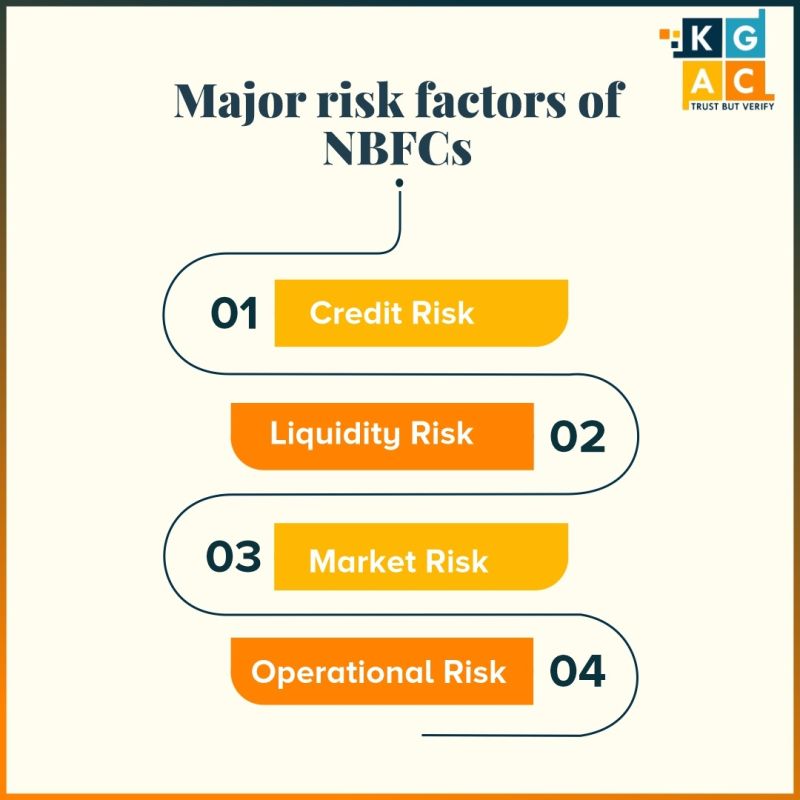
In India, both 𝘁𝗵𝗲 𝗦𝗘𝗕𝗜 𝗮𝗻𝗱 𝘁𝗵𝗲 𝗥𝗲𝘀𝗲𝗿𝘃𝗲 𝗕𝗮𝗻𝗸 𝗼𝗳 𝗜𝗻𝗱𝗶𝗮 are responsible for overseeing Non-Banking Financial Companies (NBFCs), which are integral to the financial sector. 𝗡𝗕𝗙𝗖𝘀 facilitate the lending process and play a pivotal role in the Indian financial system by addressing the diverse credit requirements of various economic sectors.
Over time, the NBFC sector has evolved significantly in terms of its operations, size, technological sophistication, and expansion into additional markets for financial services and products.
Beyond being successful in the financial sector, NBFCs face challenges in the form of risk.
Listed below are several significant risk factors that the NBFCs encounter in their daily operations. These key risk factors are:
𝗖𝗿𝗲𝗱𝗶𝘁 𝗥𝗶𝘀𝗸
Credit risk pertains to the possibility of a debt becoming uncollectible due to a borrower’s failure to meet obligatory payments. This risk may materialize due to factors such as legal actions initiated by defaulting borrowers and collateral providers, a sluggish collateral market, or a decrease in the market value, potentially resulting in the company and its subsidiaries not being able to fully recover the collateral’s value or experiencing delays in doing so.
𝗟𝗶𝗾𝘂𝗶𝗱𝗶𝘁𝘆 𝗥𝗶𝘀𝗸
Liquidity risk refers to the potential situation in which there may not be sufficient funds readily available to meet a financial obligation when it becomes due. When there is an insufficient amount of cash to fulfil a pending liability, this situation is termed a liquidity risk. The biggest factor in a mismatch between assets and liabilities is the differing maturities between assets and liabilities.
𝗠𝗮𝗿𝗸𝗲𝘁 𝗥𝗶𝘀𝗸
The risk of experiencing financial losses as a result of fluctuations in prices within the markets in which the institution is involved, such as currency, stocks, bonds, commodities, etc. Market risk poses a potential challenge to our sustained competitive edge, which may arise from the choices we make regarding markets, resources, and delivery methods.
𝗢𝗽𝗲𝗿𝗮𝘁𝗶𝗼𝗻𝗮𝗹 𝗥𝗶𝘀𝗸
Operational risk entails the potential for financial losses arising from mistakes, breaches, disruptions, or damages, whether deliberate or unintentional, attributed to individuals, internal procedures, systems, or external circumstances.
The RBI and the Ministry of Finance have periodically introduced various initiatives to support borrowers and institutions in navigating this unparalleled and challenging period. However, it remains the duty of each institution to proactively implement measures to mitigate the anticipated risks in their business.
